Valley, The / Vallee, La (1972)
“I can’t hide the fact that I’m interested in these feathers.”
|
Synopsis: |
|
Genres, Themes, Actors, and Directors:
Response to Peary’s Review: He marvels that “some of the stars even participated in tribal rituals that required them to strip and don ornamental bracelets, beaded necklaces, and weird hats” (the horrors!): … and argues that “one always feels that the expedition is for real, and that if the valley is not found, the actors, Schroeder, and cameraman Nestor Almendros are doomed” (I didn’t sense this, but maybe I’m naive or jaded). Finally, Peary points out that “the picture is beautifully, hauntingly photographed” (true) and notes that the “original music is by Pink Floyd.” I have mixed feelings about this cult film, which at first seems to be pushing a typically countercultural agenda that an authentic and meaningful life is to be found in breaking free from society’s dominant norms around sex and clothing and overall purpose for being. By the end, however, the storyline has taken a reasonably nuanced arc, thus leaving one less certain. When the film opens, we’re appropriately annoyed by Ogier’s spoiled White rich woman, who lives such a pampered life she spends her hours attemping to obtain and then sell illegally gotten plumage. Upon arrival at Gothard’s campground, we can tell she’s intrigued by the “alternative lifestyle” on display, though most likely simply from voyeurism and excitement-seeking. Once she begins her actual trek with the motley troupe, however, we can see her opening up, both physically and spiritually: … and while there are tensions, clearly Ogier’s character seems “meant” for this quest. (She’s never forced to come along, and in fact is advised against it.) Once they arrive deep within the jungles and interact with the Mapuga, she is eager to share her many insights — at which point we hear a refreshing counterbalance to her naive giddiness.
While it’s most certainly not Olivier’s place to assert what the tribe’s true motivations and feelings are, his cautionary words are an important antidote, leading the film towards its appropriately ambivalent ending. Notable Performances, Qualities, and Moments: Must See? Links: |
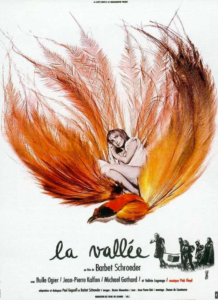
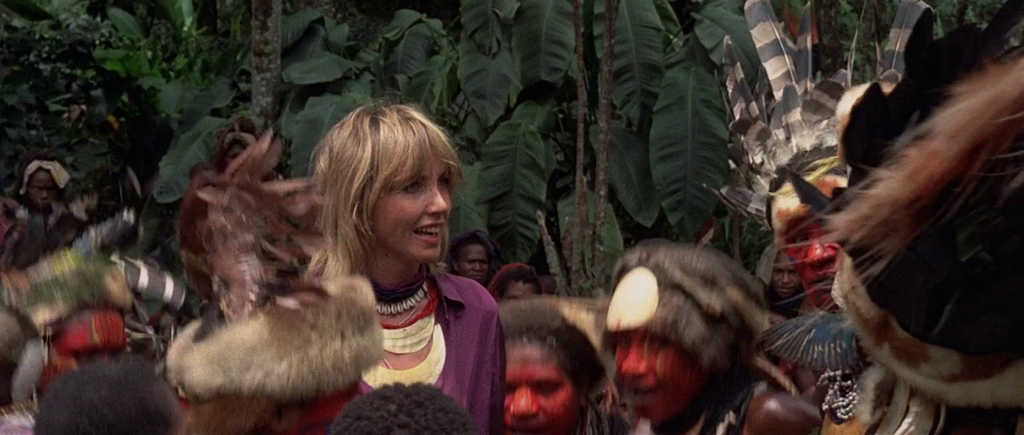
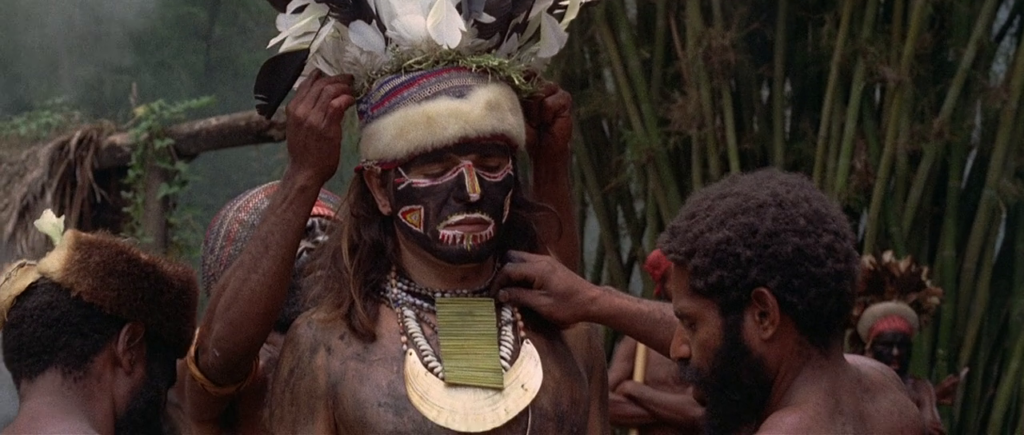
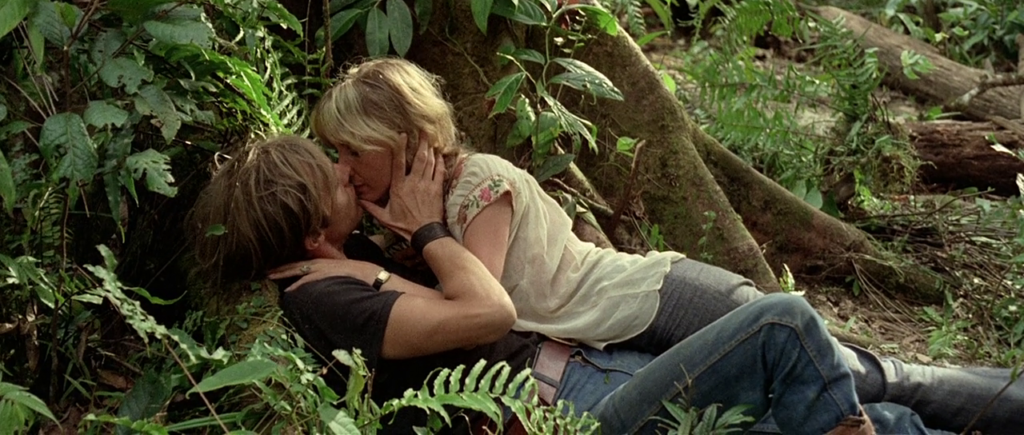
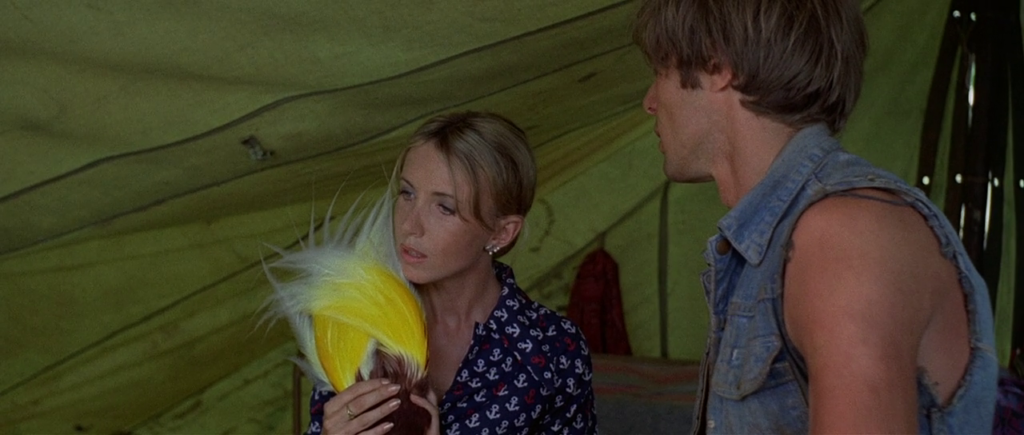
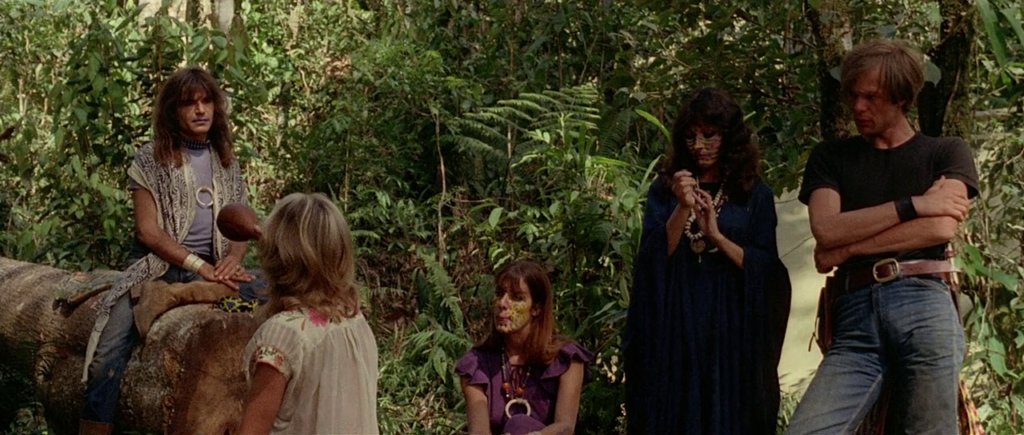
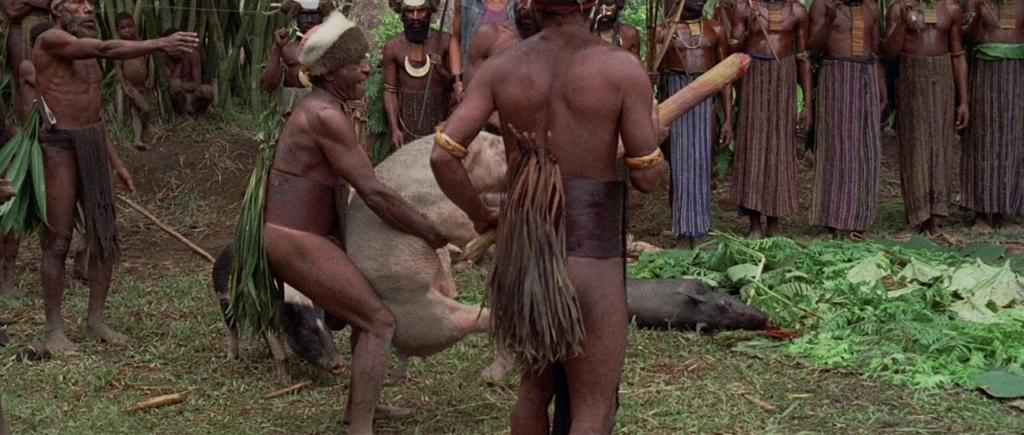
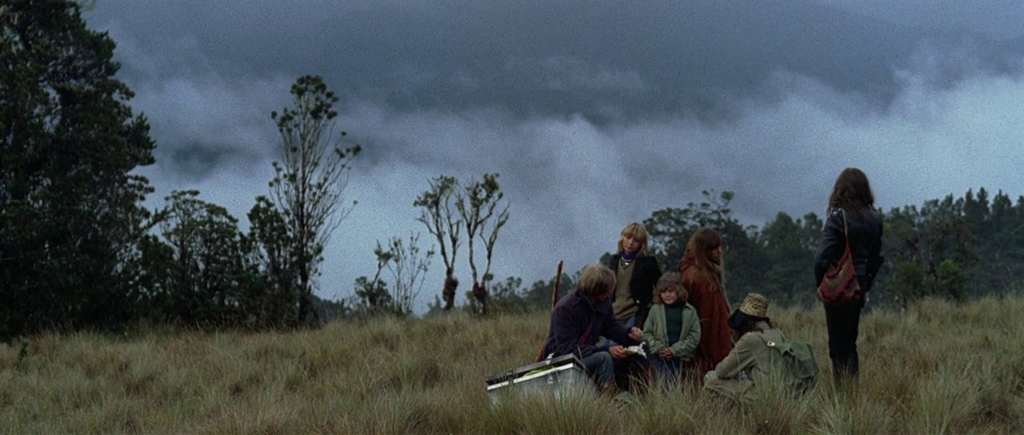
One thought on “Valley, The / Vallee, La (1972)”
First viewing (1/1/23). Not must-see.
Ponderous art film with what seems limited appeal. One might assume that director Schroeder had an overall point in mind – there’s enough there to suggest that he did – but, still, it can be work trying to figure it out. It actually seems the view of a pragmatic nihilist, yet one who maintains a vague sense of wonder with the world. One of the film’s major ideas seems to be that all peoples – whether civilized or not – have qualities that hold them back, preventing them from developing adequately.
There’s a sense among the hippies that Ogier takes up with that – in ’60s fashion – one goes with the flow of whatever comes, without thinking too deeply about it (which also seems inadequate in terms of human development). There’s a palpable pretentiousness about Ogier but that’s apparently her main character trait.
So what is The Valley? Heaven? Are all human efforts inferior to the goal of getting to Heaven? To be one with God (who isn’t talked about directly, really). Or is the valley a final nothingness in which all of what’s disappointing in life finally just ends (even if you have to bring that about by a kind of group suicide)?
I’m not sure that a second viewing would make it any clearer.
It’s beautifully shot (no surprise) by Almendros. The touted Pink Floyd score is barely noticeable – and maybe that’s why the group caused such a fuss with the producers. Viewers with an anthropological bent are the ones who may benefit most from a viewing.